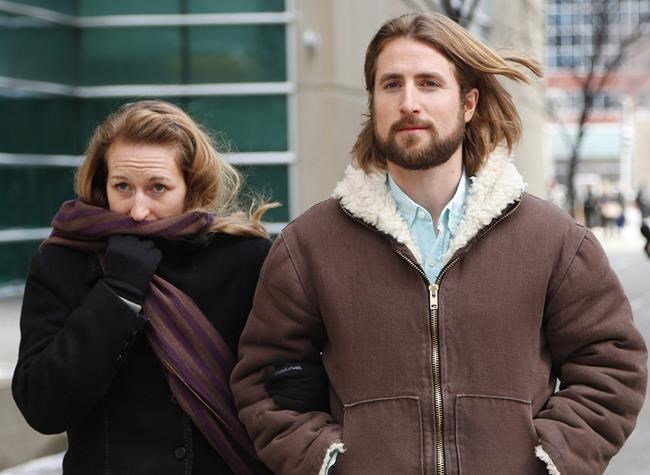CALGARY — Alberta's top court has ordered a third trial for a couple who said they thought their toddler son had croup and were treating him with natural remedies before he died.
David and Collet Stephan were accused of not seeking medical attention sooner for 19-month-old Ezekiel, who died in 2012.
A jury convicted them in 2016, but the Supreme Court of Canada overturned that verdict and ordered a second trial. A judge hearing the case without a jury found then not guilty in 2019.
The Alberta Court of Appeal on Monday granted a request by the Crown to overturn the acquittal.
David Stephan responded to the decision in a text to The Canadian Press.
"Once again the Alberta Court of Appeals has showcased its gross level of corruption," he wrote.
The Alberta Crown Prosecution Service did not say when a new trial might be held.
"It is the duty and obligation of every prosecutor to continually assess all files to ensure they meet the prosecution standard, reasonable likelihood of conviction and public interest," said a statement.
Over the course of their trials, the Stephans testified that they initially thought Ezekiel had croup, an upper airway infection, and treated him with natural remedies, including a smoothie with tinctures of garlic, onion and horseradish.
They said he appeared to be recovering at times and they saw no reason to take him to hospital, despite his having a fever and lacking energy.
They called an ambulance when the boy stopped breathing.
In acquitting them at their second trial, Justice Terry Clackson accepted the testimony of a defence expert, who said the boy died of a lack of oxygen, not bacterial meningitis as reported by Dr. Bamidele Adeagbo, the original medical examiner in the case.
Clackson noted in his decision that Adeagbo, who was born in Nigeria, spoke with an accent and was difficult to understand.
"His ability to articulate his thoughts in an understandable fashion was severely compromised by: his garbled enunciation; his failure to use appropriate endings for plurals and past tenses; his failure to use the appropriate definite and indefinite articles; his repeated emphasis of the wrong syllables; dropping his Hs; mispronouncing his vowels; and the speed of his responses,'' Clackson wrote.
The judge also called out Adeagbo for "body language and physical antics ... not the behaviours usually associated with a rational, impartial professional imparting opinion evidence.''
The Appeal Court judges ruled that the judge's critical comments about Adeagbo demonstrated the need for a new trial and for the not guilty verdicts against the Stephans to be set aside.
"It is inappropriate to disparage witnesses for their pattern of speech, accents or less than perfect command of one of Canada’s official languages. Or of any language for that matter," wrote Chief Justice Catherine Fraser.
"No witness should fear their testimony will be dismissed or discredited because of their manner of speech."
Fraser said Clackson's comments about Adeagbo were irrelevant to issues of evidence admissibility and suggest the judge rejected the medical examiner's evidence based "on the form it took, including the doctor's manner of speech, not its substance."
"We have concluded that an informed person would view the trial judge's conduct as giving rise to a reasonable apprehension of bias," Fraser wrote.
"In these circumstances, a new trial is the only available remedy."
The appellant judges also noted that Clackson erred by requiring the Crown to prove whether timely medical treatment would have saved Ezekiel's life, although they said that oversight wouldn't have been enough on its own to require a new trial.
After Clackson's verdict, dozens of medical and legal experts filed a complaint against him with the Canadian Judicial Council alleging the comments he made about Adeagbo could be perceived as racist.
This report by The Canadian Press was first published March 8, 2021.
— Follow @BillGraveland on Twitter
Bill Graveland, The Canadian Press




